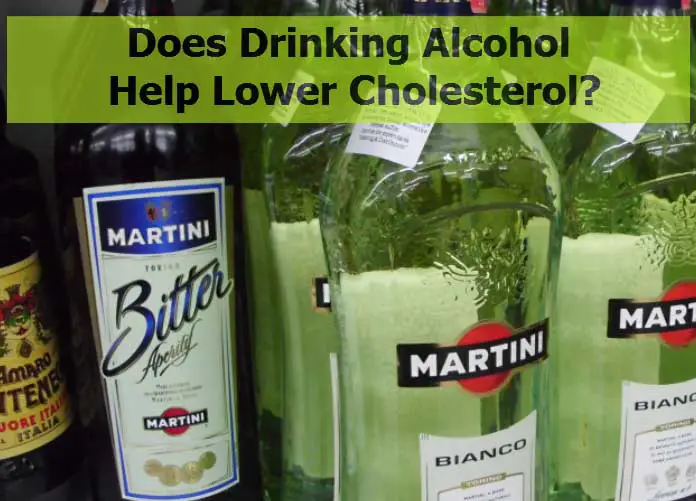
High cholesterol and alcohol have been the focus of many scientific studies and news articles. You may benefit from a drink or two per day. However, you must weigh the benefits against the risks when looking at the relationship between high cholesterol and alcohol.
High Cholesterol and Alcohol – Alcohol Can Boost HDL
Researchers looking at the high cholesterol and alcohol relationship have found that you can raise the level of HDL “good” cholesterol in your blood by drinking alcohol in moderation. You may receive additional benefits from alcohol consumption because it may decrease blood clots and inflammation markers, which contribute to heart disease.
You may have heard that drinking red wine was beneficial to your heart. Researchers tend to agree that there are heart-healthy benefits with the moderate consumption of red wine due to the high levels of resveratrol, an antioxidant that benefits the arterial walls.
LDL, HDL & High Cholesterol and Alcohol Connection
As you just read, alcohol helps increase good cholesterol. Good/HDL cholesterol is that type that helps cleanse your arteries from the build-up of Bad/LDL cholesterol.
HDL/good acts as a cleaner for your arteries by gathering cholesterol and carrying it to your liver for disposal. That’s why when doing your blood test you want to see this number high and that’s why in this aspect alcohol is considered beneficial.
But you want to make sure that your bad/LDL cholesterol is low as this is the one that blocks your arteries and leads to a heart attack.
High Cholesterol and Alcohol – How Much Should You Drink?
The American Heart Association recommends that you drink alcohol in moderation. Men can drink one or two alcoholic beverages a day and women can drink one alcoholic beverage a day. If you consumed one beer (12 oz.), one glass of wine (4 oz.), 1 glass of 80-proof liquor (1.5 oz.), or 1 glass of 100-proof liquor (1 oz.), then you had one alcoholic beverage.
Researchers as well as the American Heart Association are quick to point out that alcohol is not a cure-all for heart disease. In fact, if you drink alcohol in excess you can raise your risk of heart-related disease or stroke. You may also raise your blood pressure, risk of obesity, and the level of triglycerides (fats) in your bloodstream when you consume too much alcohol.
High Cholesterol and Alcohol Health Risks
Experts recommend that you do not start drinking if you do not already drink. They explain that the beneficial link between lowering high cholesterol and alcohol may be outweighed by the health risks of excessive alcohol consumption.
You can get the same heart-related benefits from non-alcoholic alternatives. For instance, you can drink red grape juice for similar antioxidant benefits.
Also, you can lower your cholesterol levels by increasing your physical activity and eating a diet higher in fiber (i.e. fresh fruits, vegetables, and whole grains) and lower in saturated fats (red meats and whole-milk products).
You can not control all of the factors that raise your blood cholesterol level, but you can make a significant change through simple diet and lifestyle shifts. To learn more, you are encouraged to download this quick and easy-to-follow guide:
Alcohol is only of one type of food/drink that works with cholesterol. Apart from that, there are many other cholesterol foods that lower or increase cholesterol.
Leave this page and go to All About Lowering Cholesterol homepage.
